Marine Insurance Law Case Study Assignment - University Name
VerifiedAdded on 2022/10/15
|6
|785
|164
Case Study
AI Summary
This case study assignment addresses a marine insurance claim involving a commercial pleasure cruiser damaged in a collision. The analysis focuses on two key issues: whether the insurer can deduct a cash gift received by the policyholder from the settlement and the extent to which the insurer can exercise rights of recovery from a third party. The solution references the Marine Insurance Act 1906 and relevant case law, including Burnand v Rodocanachi and Asfar & Co. Ltd v Blundell, to justify the conclusions. The document examines the principles of indemnity, subrogation, and the impact of third-party contributions on claim settlements, offering a comprehensive understanding of marine insurance law and its practical application. The assignment provides a detailed analysis of the legal principles and their application to the given scenario.
1 out of 6
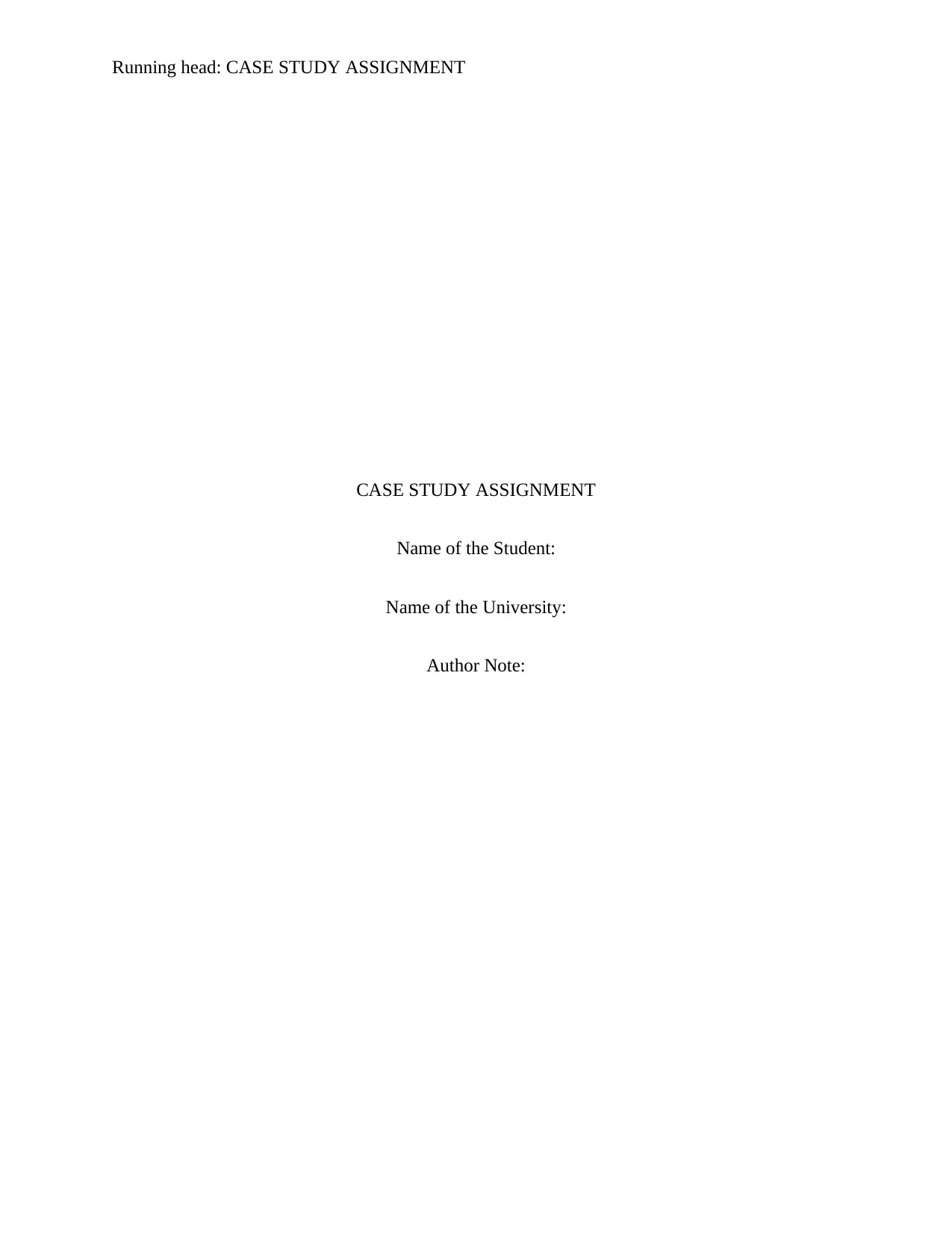
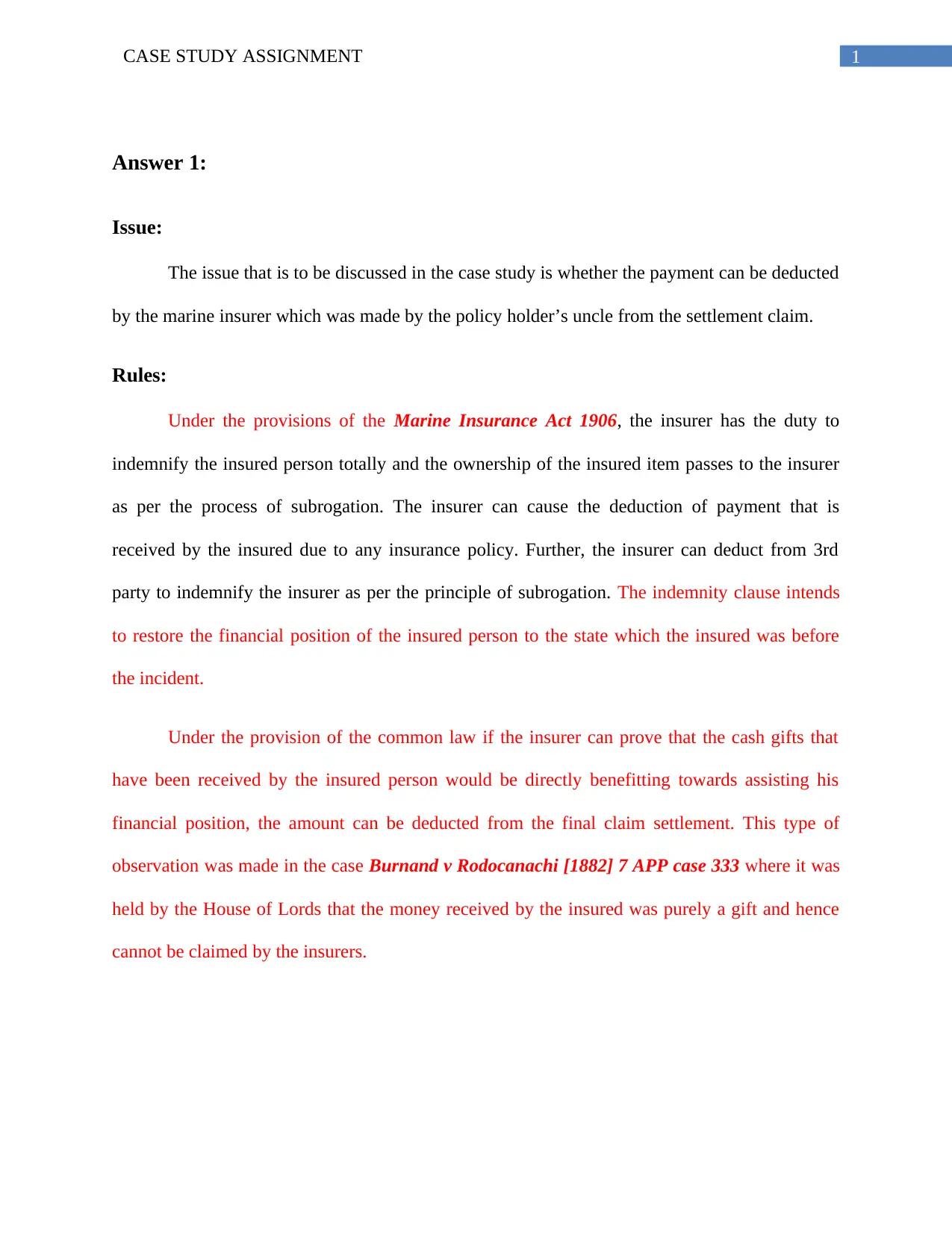
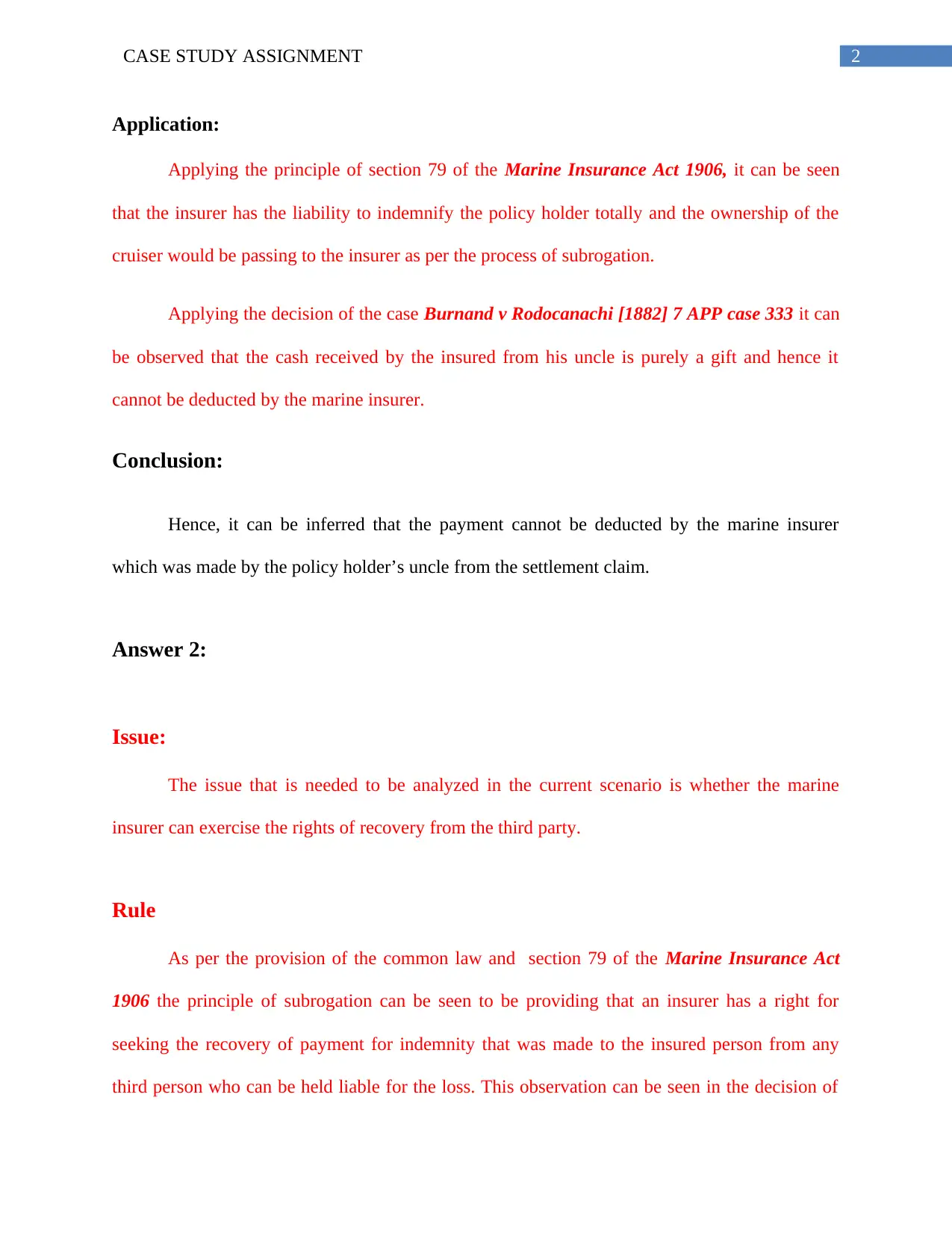

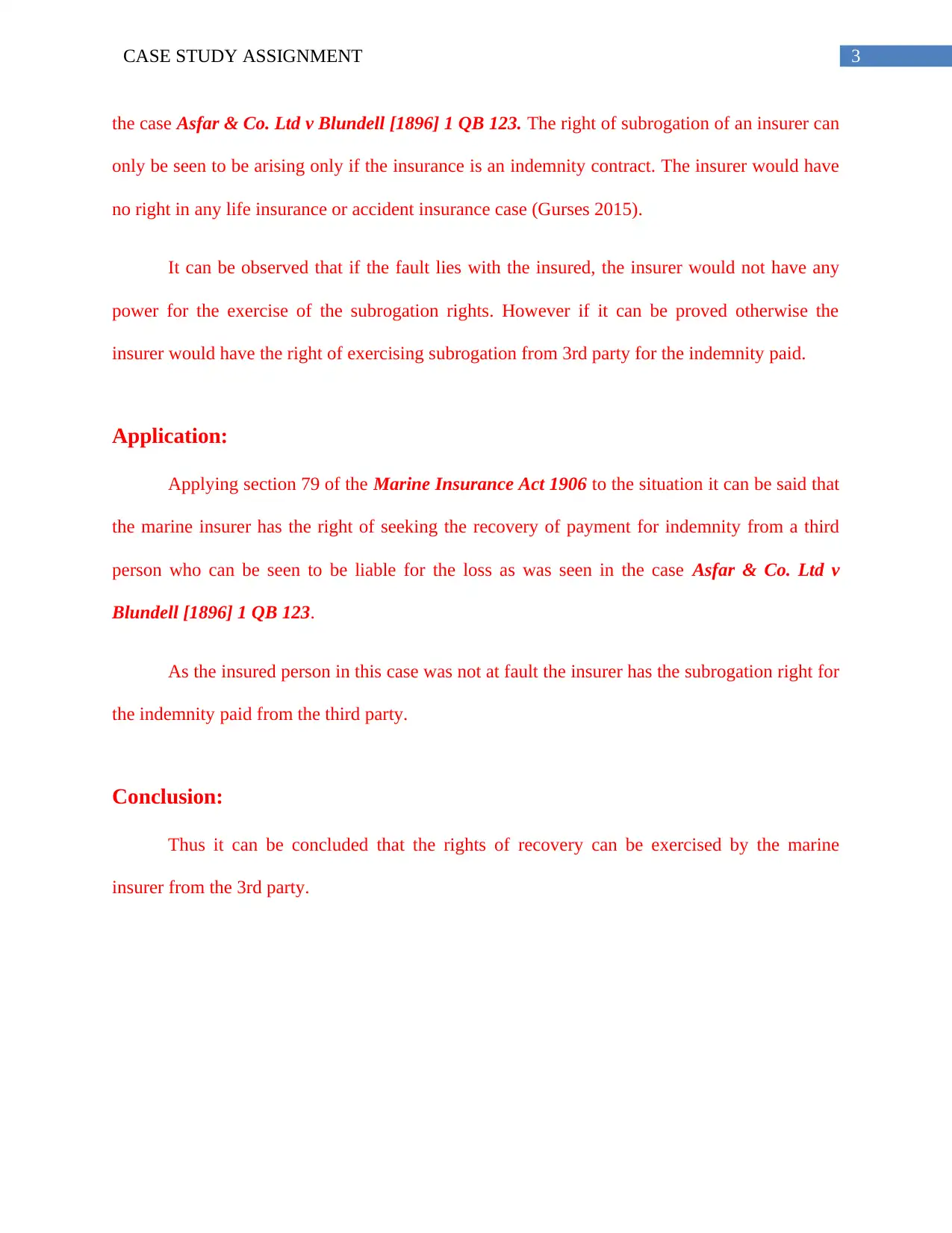

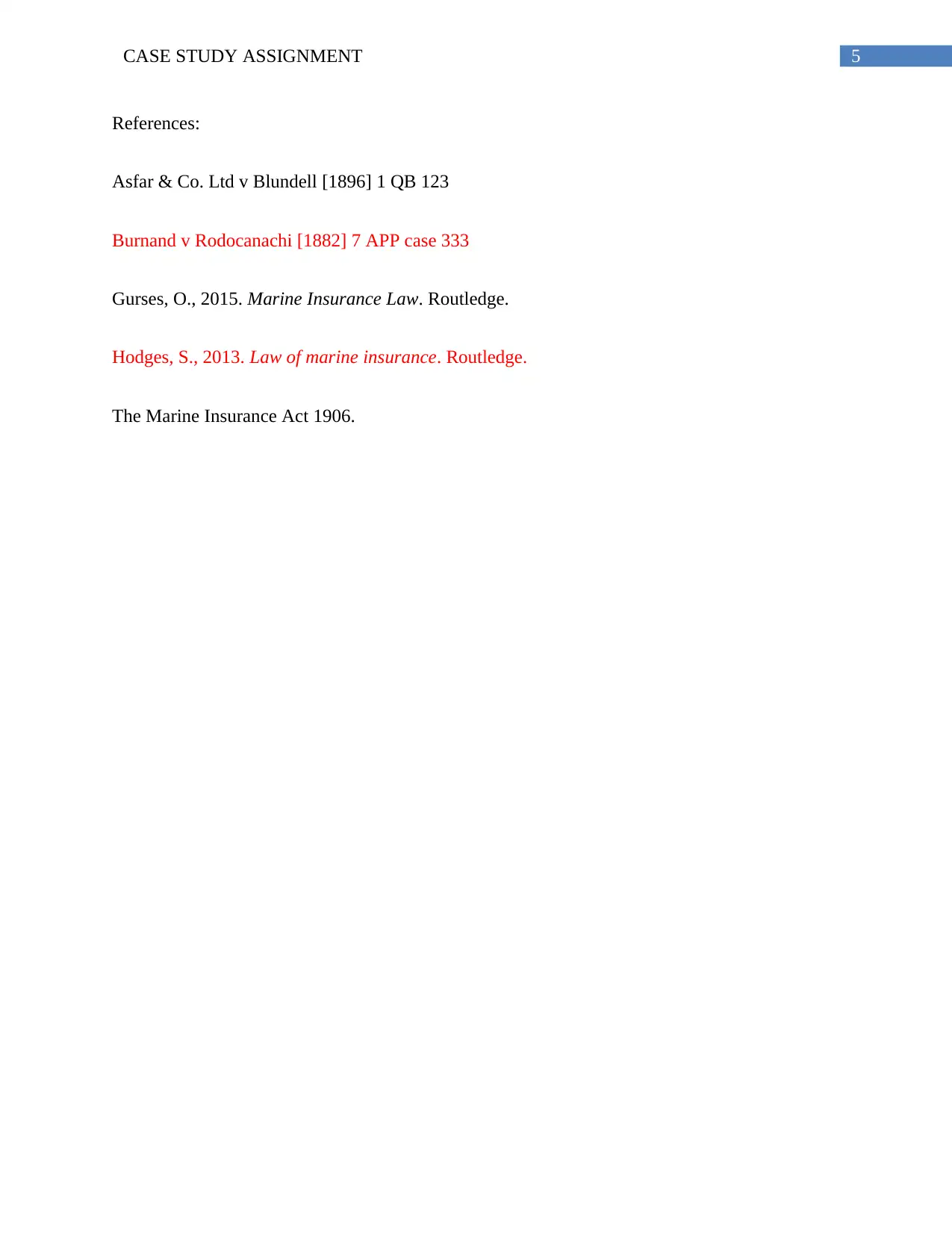
![[object Object]](/_next/static/media/star-bottom.7253800d.svg)